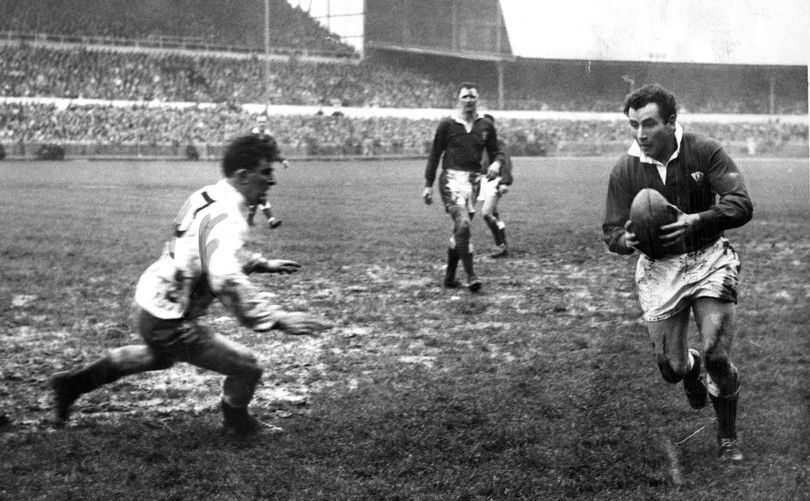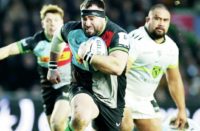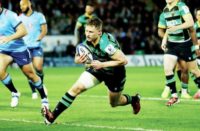TERRY Davies loved to reminisce about the old times for Swansea, Llanelli and Wales but, most of all, he loved to reminisce about the Lions and their trip round New Zealand in 1959.
He would spin yarns about how they ‘lived on ten shillings (50p) a day and had an absolutely magnificent tour'. Most of all, he would talk about the opening Test of that series and how it made a mockery of the laws of the game.
How could one team outscore their opponents 4-0 on tries and manage to lose by a single point? What kind of scoring system allowed six penalties to out-point all those tries?
“Every time they came into our half, (Don) Clarke kicked a penalty. He got six in the end and we lost 18-17. We certainly had a problem with referees.”
Davies missed that match because of a damaged shoulder but reclaimed his place from Ken Scotland for the second and fourth Tests. The series ended in Auckland as it had begun two months earlier in Dunedin with the Lions scoring all the tries.
Despite three more in the last match, they only edged it 9-6. Viewed through the prism of history, granting the penalty goal parity on the scoreboard with the try seems even more absurd now than it did then.
Astonishingly, the lawmakers on the then International Rugby Board carried on as though nothing untoward had happened. It took 12 years for the penny to drop, 12 years to decide that the try really was worth more than a penalty.
Even then, they only upgraded it by a point to four, enough for justice to have been done at Carisbrook on July 18, 1959 although Davies would have expected the local referee to leap to the rescue and give Clarke a seventh shot at goal.
A native of Bynea, Davies made such an impression that the Kiwis accorded him the rare honour of including him in the five players of the year as chosen by the New Zealand Rugby Almanack.
Acclaimed as British rugby's first superstar fullback, his other claim to fame related to an incident inspired by his nearest of misses during a 3-3 draw with England at Twickenham in 1958. Only the crossbar prevented Davies defying wind and distance with a long-range shot.
A Pembrokeshire farmer, the late Fred Mathias, felt so aggrieved that he and two friends returned to Twickenham armed with a saw. In the dead of night, they cut a part of the offending woodwork into three pieces and scarpered.
On the long journey west, made longer still by the fact that the M4 had yet to get off the drawing board, they stopped at a café where, glory be, they bumped into the man who had more reason than anyone to curse the crossbar.
A timber merchant by trade, Davies signed the piece of wood. First thing Monday morning, he contacted the RFU, explained what had happened and offered to fit a new crossbar there and then.
Anglo-Welsh relations have suffered worse before, and since.
Terry Davies, high among the nicest men to have played for Wales, died from complications caused by Covid on Thursday at the age of 88.
PETER JACKSON



























